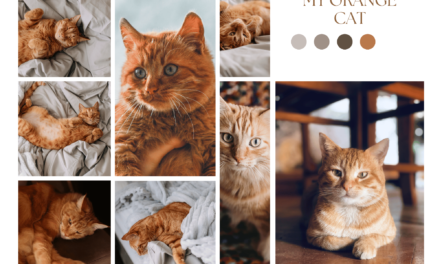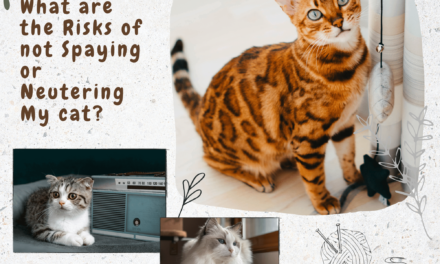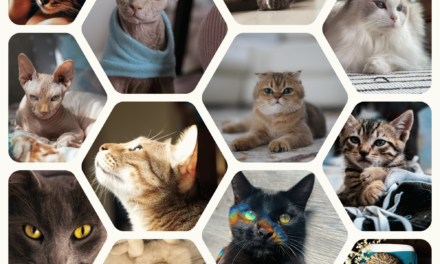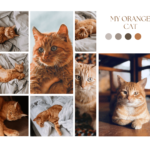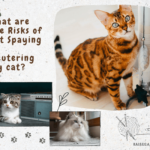Introduction: What You Need to Know About Caring for Pet Cats
Even healthy cats need a veterinary exam once a year to check for early signs of disease and infection and get booster vaccinations. Vaccines protect against common feline diseases such as feline infectious enteritis, cat flu and feline leukaemia virus.
A veterinarian will examine your cat’s teeth, ears, eyes and heart during a veterinary exam. They can also screen for enlarged lymph nodes, ear mites and skin tumours. Blood work is a vital diagnostic tool, and it can pick up early changes in organ function, such as kidney and liver disease.
Some cats need a parasite prevention regimen tailored to their lifestyle, while others may need an annual flu shot or other vaccines. All cats should be vaccinated against rabies, feline herpesvirus, and panleukopenia virus (often in a combined FVRCP vaccine).
Kittens often need help learning how to use their litter box, so supervise them until they have mastered it. Also, many kittens are prone to respiratory illnesses and ear infections. Keep a close eye on their appetite, sleep schedule and behaviour for any unusual changes. If you are worried about taking your cat to the vet, ask your veterinarian about calming pheromones or chews that can be given before visits and during car rides.

Essential Cat Care Routine – Grooming, Exercise & Feeding Your Feline Friend
Cats are less demanding than dogs and can fit into busy lifestyles. However, they still need routine care, including vaccinations and parasite control. They also need shelter and protection from household hazards such as chemicals, medications, antifreeze, electrical cords and common plants that can be toxic.
Caring for your cat involves a few basic routines that you should follow to ensure your feline friend stays healthy and happy. Here are some essential aspects of cat care:
- Grooming: Regular grooming is essential for your cat’s health and hygiene. Brush your cat’s coat regularly to remove loose hair and prevent hairballs. Bathing your cat is not always necessary, but if you do, use a cat-specific shampoo and rinse thoroughly. You should also trim your cat’s nails and clean their ears periodically.
- Exercise: Cats, as natural hunters, require a lot of exercise to stay healthy. Keep your cat entertained by providing interactive toys that encourage movement, including balls and catnip toys. You can also provide scratching posts to keep them active and engaged.
- Feeding: Your cat’s diet is crucial to their overall health. Look for high-quality cat food appropriate for your cat’s age, weight, and health needs. Wet food is a good option for cats who need more moisture, while dry food can help keep their teeth clean. Avoid feeding your cat table scraps, which can upset their stomach and cause health problems.
- Health care: Regular vet visits are critical for your cat’s health. Check your cat’s vaccines and preventative maintenance, such as flea and tick medicine. Bring your cat to the vet right away if you detect any changes in his or her demeanour or health.
Following these basic routines ensures that your cat stays healthy, happy, and well-cared for.
Common Health Problems in Cats and How to Spot Them Early On
- Urinary tract infections (UTIs): Blood in the urine, frequent urination, and straining to urinate are symptoms of a UTI in cats. Take your cat to the vet if you experience these signs.
- Dental issues: Cats can suffer from dental problems such as gum disease and tooth decay. Bad breath, drooling, and having trouble eating are all symptoms of problems with the teeth. Regular dental check-ups and cleanings for cats can help prevent problems with their teeth.
- Obesity: Obesity is a common problem in cats and can lead to other health problems such as diabetes and joint problems. Signs of obesity include a visibly round belly, difficulty moving around, and lethargy. Feeding your cat, a healthy diet and providing regular exercise can help prevent obesity.
- Hairballs: Hairballs are common in cats, especially those with long hair. Signs of hairballs include vomiting, coughing, and gagging. Regular grooming can help prevent hairballs.
- Respiratory infections: Cats can develop respiratory infections such as colds and flu. Symptoms include sneezing, coughing, and runny nose. If your cat shows signs of a respiratory infection, take them to the vet for treatment.
It’s essential to be aware of these common health problems and to take your cat to the vet if you notice any signs of illness. Early detection and treatment can help prevent more severe health problems.

Choosing the Right Cat Supplies to Make Your Pet’s Life Easier
- Choosing the right supplies for your cat can make their life easier and more comfortable. Here are some essential cat supplies to consider:
- Litter box: A good litter box is essential for your cat’s comfort and hygiene. Look for a litter box that is the right size for your cat, easy to clean, and has high sides to prevent litter from spilling. For kittens, consider a smaller litter box with lower sides that are easier to climb into.
- Scratching post: Cats need to scratch to keep their claws healthy and to mark their territory. Provide your cat with a scratching post or pad to prevent them from scratching your furniture. Look for a sturdy post tall enough for your cat to stretch out fully.
- Toys and treats: Toys and treats can provide mental stimulation and keep your cat entertained. Look for safe and appropriate toys for your cat’s age and activity level, such as balls, catnip toys, and interactive toys. Treats can be used to reward good behaviour or bond with your cat.
- Food and water bowls: Look for bowls that are the right size for your cat and easy to clean. Stainless steel or ceramic bowls are a good option, as they are durable and easy to sanitize.
- Bedding: Cats need a comfortable place to sleep and rest. Look for a bed that is the right size for your cat and provides plenty of cushioning. You can also provide blankets or towels for your cat to snuggle up in.
Choosing the right supplies for your cat can make their life easier and more comfortable while promoting their health and well-being.
Creating the Perfect Home Environment – Making Sure Your Cat is Always Comfortable & Safe
Creating the perfect home environment for your cat can be a challenge. It’s essential to ensure your cat is always comfortable and safe. There are some simple steps you can take to ensure your feline friend is content and secure in their new home. From establishing a routine to providing adequate space, there are several things you should consider when creating the perfect home environment for your cat. With these tips, you can create a safe and comfortable space that will make your pet feel at ease and give them the best home experience.
Creating the perfect home environment for your cat is essential to ensure their comfort and safety. Here are some tips to help you create a cat-friendly home:
- Provide plenty of hiding places: Cats need a safe place to retreat when scared or overwhelmed. Provide your cat with plenty of hiding places, such as cat trees, boxes, or tunnels.
- Keep toxic substances out of reach: Cats can be curious and may try to eat or drink harmful things. Keep toxic substances such as cleaning products, medications, and plants out of reach.
- Create a comfortable sleeping area: Cats need a comfortable place to sleep and rest. Provide your cat with a cosy bed or blanket in a quiet area of your home.
- Offer plenty of scratching surfaces: Scratching is a natural behaviour for cats and helps keep their claws healthy. Provide your cat with plenty of scratching surfaces, such as scratching posts or pads.
- Provide plenty of toys and stimulation: Cats need mental stimulation and physical exercise to stay healthy and happy. Provide your cat with plenty of toys and interactive playtime to entertain them.
- Keep food and water bowls clean: clean food and water bowls regularly to prevent the growth of bacteria and keep your cat healthy.
- Provide a litter box: Provide your cat with a clean and comfortable litter box in a quiet area of your home. Please ensure the litter box is large enough for your cat to move around and scoop it regularly to keep it clean.
Creating a comfortable and safe environment for your cat can help ensure their health and happiness.

